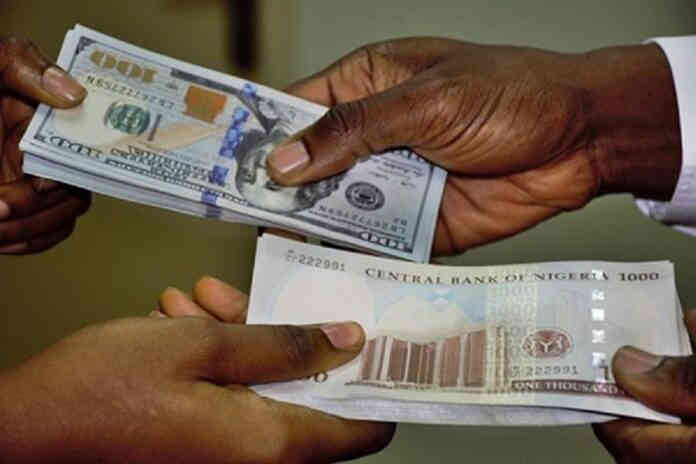Naira to dollar crashes to all time low at black and Official windows
Advertisement 2
Nigerian Naira Records Slight Decline Against US Dollar on Black Market
On Saturday, June 10th, 2023, the Nigerian Naira experienced a depreciation against the US Dollar at the black market, trading at an average rate of N764/$1. This represents a marginal decline of 0.13% compared to the previous day’s trading session when the exchange rate stood at N763/$1.
Russia Ukraine War Live update for today Saturday June 10, 2023
Advertisement 5
Reports from Bureau de Change (BDC) traders, as conveyed by Ejes Gist News, confirmed this downward trend in the Naira’s value against the Dollar.
Naira’s Depreciation Continues Against British Pound and Euro
In addition to its decline against the US Dollar, the Nigerian Naira also witnessed a significant depreciation against the British Pound on June 10th, 2023. The average exchange rate stood at N960/£1, indicating a decrease of 0.73% compared to the previous day’s trading session, during which the Pound traded at an average rate of N953/£1.
.
Furthermore, the Naira suffered a notable decline of 0.62% against the Euro, trading at an average exchange rate of N810/€1 on the same day. This stands in contrast to the previous day’s trading session when the Naira traded at N805/€1.
Understanding Currency Fluctuations in the Global Market
It is crucial to recognize that currency fluctuations are a natural occurrence in the global foreign exchange market. Various factors contribute to the dynamic nature of currency valuations, including economic indicators, geopolitical events, and market sentiment. Staying informed about these factors is essential for investors and individuals engaged in currency trading to make informed decisions.
Black-Market Exchange Rates Vary Across Locations
Furthermore, it’s important to note that black-market exchange rates can significantly vary across different locations within Nigeria. Several factors contribute to these variations, such as timing of surveys, supply and demand dynamics, purchasing power, and other pertinent economic considerations.
Advertisement 3
In conclusion, the Nigerian Naira experienced a slight decline against the US Dollar on the black market, along with significant depreciations against the British Pound and Euro. Currency fluctuations are a natural part of the global foreign exchange market, and staying informed about the factors driving these fluctuations is crucial for making informed decisions in currency trading. Additionally, it’s essential to acknowledge the variability of black-market exchange rates across different locations within the country.
Here is the break down of Naira to other currencies.
Naira/Dollar (NGN/USD)
Advertisement - 6
- Buy rate – N760/$1
- Sell rate – N764/$1
Naira/Pound (NGN/GBP)
- Buy rate – N945/£1
- Sell rate – N960/£1
Naira/Euro (NGN/EUR)
- Buy rate – N793/€1
- Sell rate – N810/€1
Naira Depreciates Against Dollar at Investors and Exporters Window as CBN Governor is Suspended
On Saturday the Nigerian Naira experienced a further depreciation against the US Dollar at the Investors and Exporters window, exchanging at N472.50 to the dollar. This represents a 0.64% decrease compared to the previous day’s exchange rate of N469.50.
The open indicative rate, which is used as a reference for determining exchange rates, closed at N471.32 to the dollar on Friday.
During the day’s trading, the exchange rate reached a high of N477 to the dollar before settling at N472.50.
However, the Naira also saw some improvement as it sold for as low as 460 to the dollar at certain points during the trading session.
Advertisement - 6
In terms of volume, a total of $77.42 million was traded at the official Investors and Exporters window on Friday.
It’s worth noting that these developments in the foreign exchange market coincided with the suspension of Godwin Emefiele, the Governor of the Central Bank of Nigeria, by President Bola Tinubu. The impact of this suspension on the currency market remains to be seen and will likely be closely monitored by market participants.
The depreciation of the Naira against the US Dollar highlights the challenges faced by Nigeria’s currency in recent times. Fluctuations in exchange rates can have various causes, including economic factors, market sentiment, and government policies. Investors and stakeholders will continue to monitor the situation closely as they navigate the foreign exchange market.
Advertisement 2

